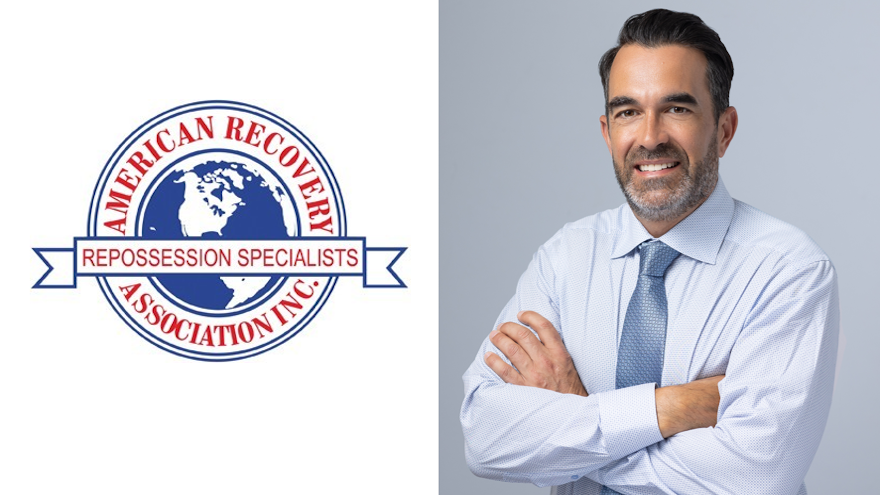ARA responds to potential ‘edict’ involving repossessions & liability

Joel Kennedy is now executive director of the American Recovery Association.
By subscribing, you agree to receive communications from Auto Remarketing and our partners in accordance with our Privacy Policy. We may share your information with select partners and sponsors who may contact you about their products and services. You may unsubscribe at any time.
Having just established new leadership, the American Recovery Association is continuing its proactive approach to serve its members, highlighting the potential pitfalls of a potential “edict” recently made by an unnamed auto finance company.
The entire matter stems from recent bulletin distributed by the Consumer Financial Protection Bureau titled, “2022-04: Mitigating Harm from Repossession of Automobiles.” ARA recapped that the bulletin outlines the bureau’s application of the unfair and deceptive acts and practices (UDAAP) to the repossession process.
In the bulletin, ARA noted that the bureau lays out a variety of categories of concern and references prior enforcement cases brought by the CFPB.
In section III of the bulletin, under the category of “the bureau’s expectations,” ARA pointed out that the CFPB cited 20 unique examples of instances where the bureau intends to hold “auto lenders, loan holders, and servicers accountable if they or their agents commit UDAAPs when repossessing automobiles.”
Now here’s when the situation become even more complicated, according to a news release distributed by ARA this week.
The association said a recent letter from a finance company client was distributed to its network of agents and forwarders. According to ARA, the letter indicates that repossession agents will be held liable in situations where the wrongful repossession was determined to be a result of a failure on the part of the repossession agent.
Subscribe to Auto Remarketing to stay informed and stay ahead.
By subscribing, you agree to receive communications from Auto Remarketing and our partners in accordance with our Privacy Policy. We may share your information with select partners and sponsors who may contact you about their products and services. You may unsubscribe at any time.
The association referenced two examples contained in the letter, including:
—The repossession order was not validated prior to the repossession
—Ff the repossession agent caused a delay in returning collateral that was deemed “wrongfully repossessed” by the finance company
According to ARA, this initiative went into effect on July 1 for this finance company and its agents. The letter also outlined monetary penalties to be absorbed by the repossession agent under these circumstances, the ARA said.
“Standard indemnification clauses already exist in contracts between lenders, servicers and the agents,” ARA said. “Issuing a letter indicating a shift in liability and monetary penalties to your network of agents comes across more like an edict, and does not necessarily constitute a legally binding, and agreed to contract change.
“The American Recovery Association (ARA) is against this approach,” the organization continued. “It puts an additional burden on the agents that is redundant with the liability already contractually owned by agents within the contracts that are already in place. The ARA welcomes all opportunities to work with lender and servicer partners to build standards and procedures that are acceptable to all involved.”
And likely to be a part of that potential process is new ARA executive director Joel Kennedy, who elaborated about taking on this position in a separate message sent to SubPrime Auto Finance News.
“Working alongside Les McCook and Dave Kennedy for the past four years has been an honor and a downright pleasure,” Joel Kennedy said. I thank the National Automotive Finance Association’s first executive director Jack Tracey for having the guts and the vision to build a bridge between the NAF and the ARA. I see my leadership role in the ARA as a continuation of the work and progress we have made.
“I have watched the birth of Repo Alliance, which finally gives the recovery industry a voice on Capitol Hill. I have watched Les and Dave unite the industry. These are not easy things. In fact, there were more people advising us that we are wasting our time, rather than throwing their weight and support behind us,” Joel Kennedy continued.
“I am blessed to have the opportunity to use my gifts for the betterment of the industry. The American consumer and our lender clients deserve to be served by the ARA; the most professional, highly trained, compliant, and dedicated group of recovery professionals on the planet,” Joel Kennedy went on to say.
“Exciting times are ahead, and I invite my peers in the other industry trade groups to pick up your gloves and get in the game. United we can do so much to move the industry forward all while protecting and respecting the rights of hard-working Americans,” he added.


